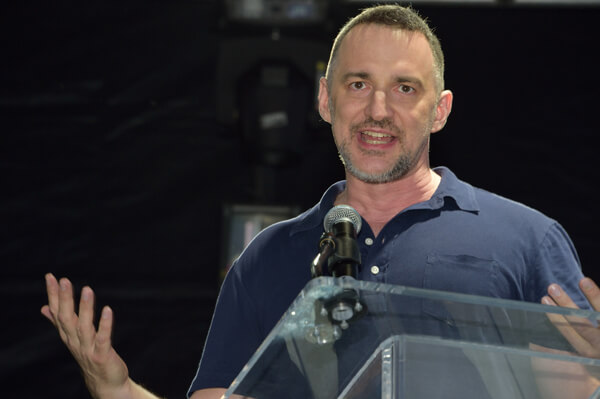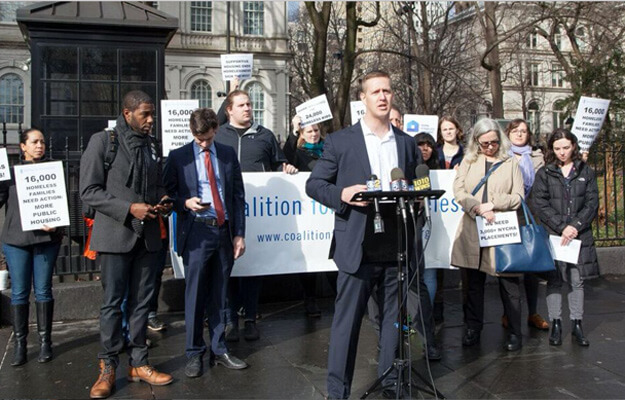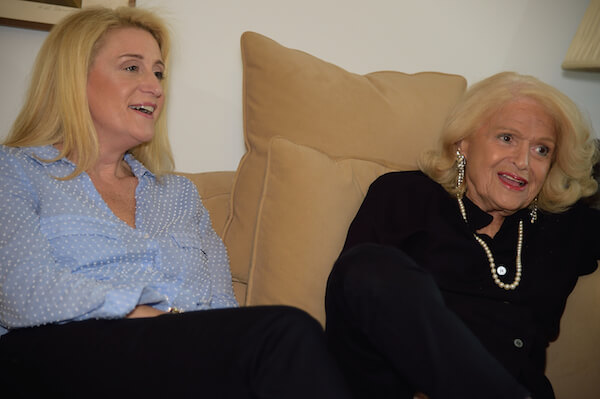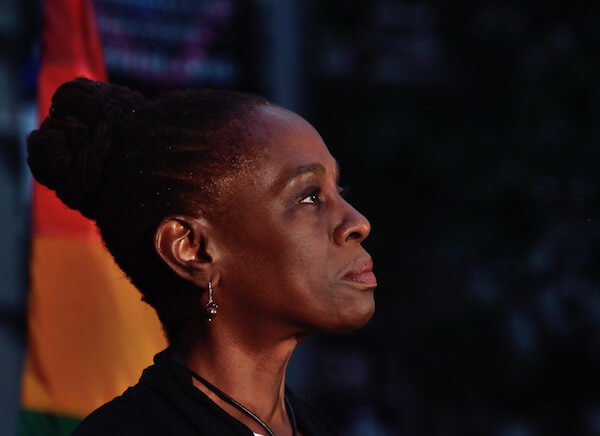The Ali Forney Center, the nation’s largest agency serving homeless LGBT youth, will receive more than $1 million in federal grants to address domestic and sexual violence, substance abuse, and mental health challenges affecting its client population. AFC serves an estimated 1,400 clients annually and operates 10 housing sites citywide as well as a 24-hour drop-in center in Harlem.
The grants were announced in a release from West Side Congressmember Jerrold Nadler and Carl Siciliano, AFC’s executive director. “LGBTQ youth are at particular risk of ending up on the street, often being ostracized and cast out of their homes for simply being who they are,” Nadler noted.
In an interview, Siciliano explained that prior to President Barack Obama taking office 2009, there was essentially no direct federal support for programs serving LGBT youth. In the half-dozen years after its founding in 2002, the only federal dollars AFC enjoyed came via block grants administered by the city –– either from the Housing Opportunities for People With AIDS program (HOPWA) or the Ryan White AIDS CARE Act.
Money will strengthen social services provided at Harlem drop-in center
When Obama announced a 10-year plan to end homelessness in 2010, LGBT youth were among three historically disenfranchised populations targeted as priorities. The following year, AFC won a variety of grants that made it possible to begin planning the 24-hour drop-in center it now operates at 125th Street and St. Nicholas Avenue.
By the time those grants ended in 2014, however, the fiscal climate in Washington had constricted, likely due to the sequestration of funds that resulted from the Capitol Hill budget wars. Even though AFC scored higher on their applications than three years earlier, the agency saw a loss of about $1 million last year out of a total revenue stream for the year ending June 30, 2014 of just over $7.1 million.
“Losing $1 million last year was tough,” Siciliano said, noting that the bulk of the money lost paid for services at the 24-hour center. “Almost all of the new money will go toward services at the drop-in center,” he said.
Of the roughly $1 million, just over $330,000 is targeted for victims of human trafficking. An estimated 25 percent of homeless youth have been victims of trafficking, according to the Nadler-Siciliano release. Just under half a million dollars comes in a grant to do substance abuse and mental health treatment and to provide HIV testing. And about a quarter of a million dollars is going to AFC to serve youths who have been victims of sexual assault and domestic violence.
Siciliano welcomed what he said has become “a lot of noise out there about youth homelessness.” In addition to the new attitude at the White House over the past seven years, he credited the work of a coalition AFC is heading, the National Campaign for Youth Shelter, as well as the work of Cyndi Lauper’s True Colors Fund, the National Network for Youth, and the National Alliance to End Homelessness.
Still, Siciliano noted, of all federal expenditures on homelessness, only about five percent goes to serve unaccompanied youth. Nationwide, there are still only about 4,000 beds to shelter an estimated half-million homeless youth.
One area he said needs particular focus are the needs of homeless youth 21-24, for whom there are few options besides adult shelters, which are dangerous and put them into a population of chronically homeless adults. Pointing to AFC’s success in seeing 75 percent of its transitional housing population enrolled in college, Siciliano said programs tailored to the older youth population could yield far better outcomes for them than chronic homelessness.
AFC is currently consulting with other advocates on ways to lobby for this population, but Siciliano knows already that it will be one of his agency’s priorities as it looks to the city’s June 2016 budget negotiations.




































